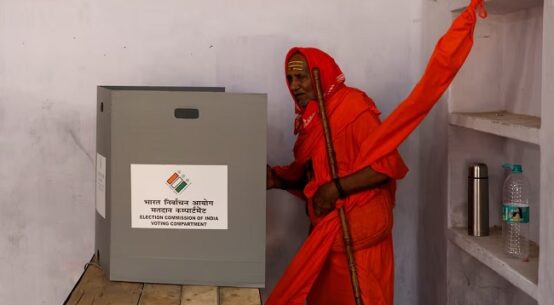
Ukraine’s President Volodymyr Zelensky signed a security pact with France on Friday hours after securing a similar deal with Germany hailed by Chancellor Olaf Scholz as a “historic step” to lock in support for Kyiv in its raging battle against Russia.
Both agreements are part of Zelensky’s drive to shore up help for his forces who are struggling to hold off Russian attacks on the frontline city of Avdiivka.
The agreement with France, signed by Zelensky and French President Emmanuel Macron at the Elysee palace, includes a French pledge for up to 3 billion euros ($3.2 billion) in aid for 2024, after 1.7 billion in 2022 and 2.1 billion last year, officials said.
They said the pact would run for 10 years, and notably strengthen cooperation in the area of artillery.
They said the deal was aimed at helping Ukraine with the “re-establishment of its territorial integrity within its internationally-recognised borders”, and forestall “any renewed Russian aggression”.
The deal is also to help pave the way towards Ukraine’s future integration into the European Union and NATO, the officials said.
“France affirms that a future Ukrainian membership would constitute a useful contribution to peace and stability in Europe,” they said, quoting from the agreement.
With the Ukraine war about to enter its third year, Zelensky is set to make further pleas for financing and armaments at the Munich Security Conference on Saturday, where leaders such as US Vice President Kamala Harris have gathered.
Zelensky’s European tour comes at a critical time, with Ukraine facing mounting pressure on the eastern front because of ammunition shortages and fresh Russian attacks.
The long-term future of billions of dollars of Western aid is meanwhile in doubt, with the biggest contributor, the United States, in the throes of an election year.
A possible $60-billion package of military aid has been held up in Washington since last year because of wrangling in Congress.
At a joint news conference with Macron, Zelensky said he hoped that the deals with Germany and France would add “an impulse” to US efforts for his country.
The EU has admitted that it will only be able to make good on half of the one million artillery shells it promised to send by March.
But Scholz underlined that the security pact inked in Berlin earlier Friday illustrates that Germany will “not let up” in supporting Ukraine. He also announced a new 1.1 billion-euro package of immediate military support.
“This document … shows that Germany will continue to help Ukraine with its defence against Russia’s attacks. I have often said: for as long as it takes,” said Scholz, who also called the signing of the deal “a historic step”.
G7 nations flagged plans to provide Ukraine with long-term defence support on the sidelines of the NATO summit last July. Alliance leaders failed, however, to set a timetable for Ukraine to join the bloc.
A first agreement had been signed with Britain in January, during Prime Minister Rishi Sunak’s visit to Kyiv.
Zelensky is seeking to shake off any war fatigue besetting his allies. Addressing the conference in Munich, Harris said President Joe Biden’s administration “will work to secure critical weapons and resources that Ukraine so badly needs”.
Abandoning Kyiv would be a “gift to (Russian President) Vladimir Putin,” she said, on the eve of bilateral talks with Zelensky.
Ukraine was once the main conflict on the minds of world leaders but Israel’s war with Hamas and the ensuing escalating crisis in the Middle East now also require urgent attention.
Zelensky’s European tour was meanwhile overshadowed by the announcement Friday of the death in a Russian prison of opposition figure Alexei Navalny that sparked worldwide reactions.
“Obviously he was killed by Putin,” Zelensky said in Berlin. “Like thousands of others who have been tortured.”
He said this demonstrated why Putin must be made to “lose everything and held accountable for his actions”.
Macron told the joint news conference that Navalny’s death “illustrates the Kremlin’s weakness and its fear of all opponents”.
Referring to US reports that Russia could be developing a space-based nuclear weapons system, Macron said that “Russia must give an explanation without delay” on the matter.
Macron also accused Russia of cyberattacks that he said constituted an “aggression against our country”.
The French president said cyberattacks and disinformation campaigns by the Kremlin showed that “Vladimir Putin’s Russia has become a systematic actor of destabilisation in the world”.


